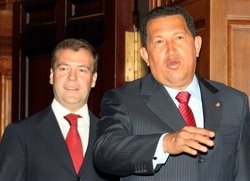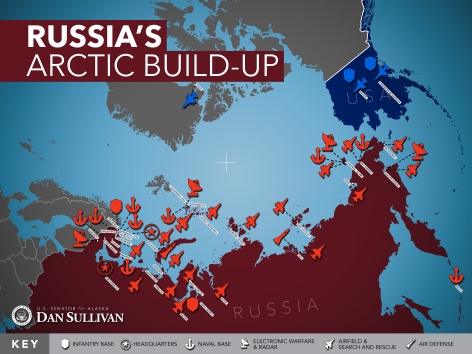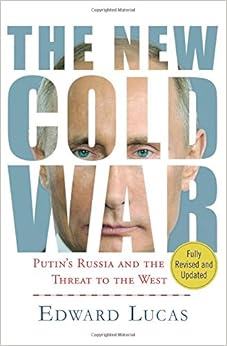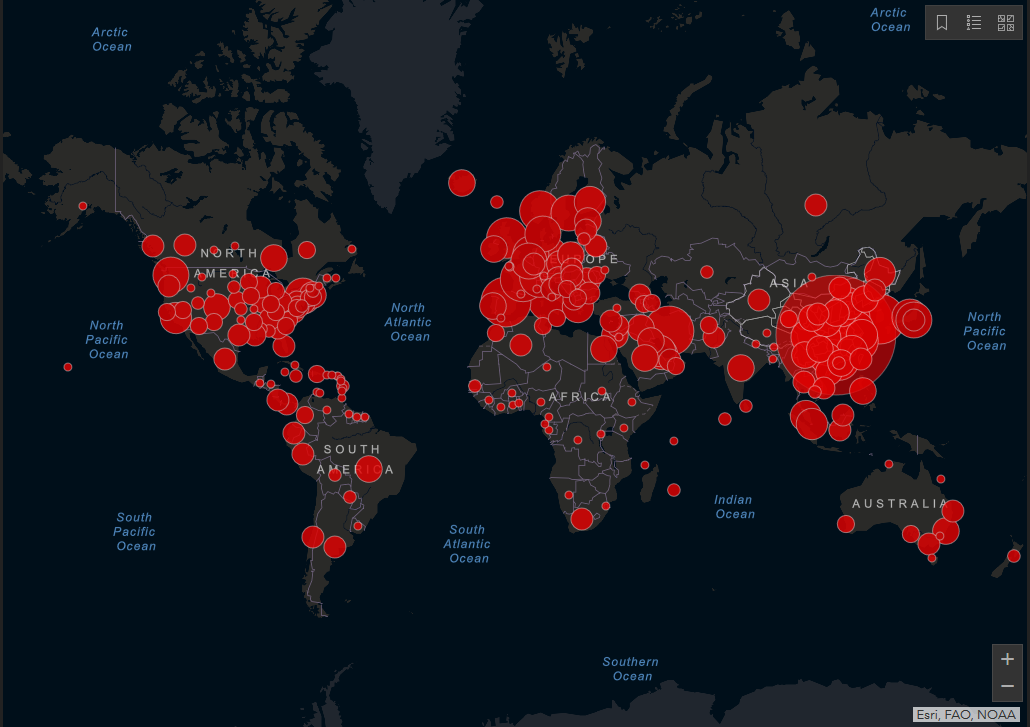> The “Belarusian National Liberation Army” Strikes Again . . . with a Little Help from Lukashenko’s KGB
The “Belarusian National Liberation Army” Strikes Again . . . with a Little Help from Lukashenko’s KGB
Earlier today an explosive device detonated on the perimeter of an Independence Day concert in Minsk, attended by Belarusian President Alexander Lukashenko. The country’s dictatorial leader was not injured, but 50 concert-goers were. According to the International Herald Tribune the bomb, consisting of nuts, bolts, and screws, left an eight-inch-deep crater. “In 2005, a home-made explosive device wounded more than 40 people in the northern city of Vitebsk,” Reuters reports. “A little known, anti- Lukashenko group, The Belarussian National Liberation Army later claimed responsibility but no one was convicted.” Somewhat surprisingly, Lukashenko spokesentity Pavel Legkiy denied that the bombing was an assassination attempt against the president: “This was not an attempted assassination on the president. That is my personal opinion, not as a specialist, but as a person who was at the scene … Of course there can be a number of explanations and the truth will be established in the course of the investigation.”
Pictured above: Belarusian State Security Committee (KGB) officers investigate scene of July 4 blast in Minsk.
Earth Times has one of the best summations of the incident, pointing out that the previous day, in an interview with Komsomolskaya Pravda, Lukashenko predicted that a street bombing would disrupt the campaigns preceding the October 12 parliamentary election. Comrade Alex linked his political opponents to the USA, with the following accusation: “They have always said it openly: They only give money when something happens. Therefore demonstrations or even better riots or explosions.” Anti-Lukashenko critic Anatoly Lebedko, who was quoted by Kremlin-run Novosti, fears that the Belarus’ neo-Soviet regime will identify the country’s beleagured opposition as the bombing perpetrators. In addition to regime critics, the Belarusian KGB has targetted for repression evangelical Christian groups, ethnic Polish associations, and Western non-governmental organizations, such as the Washington-based National Democratic Institute. “There are circles of people close to the state, who could well be interested in increasing tensions before the vote,” intimated Svetlana Kalinka, chief editor of the opposition Narodnaya Volia newspaper, quoted below.
Bloody attack ahead in Belarus vote – accusations fly – Feature
Posted : Fri, 04 Jul 2008 13:18:03 GMT
Author : DPA
Minsk – It should have been a pleasant Independence Day celebration in Belarus, but the state-organised music event ended in blood and horror. An explosive device detonated on the edge of a public concert attended by thousands in a central square of Minsk, the Belarusian capital, during the early hours of Friday morning.
The explosive device containing screws, nuts and bolts injured more than 50 concert-goers, three seriously.
Aleksander Lukashenko, the former Soviet republic’s authoritarian president, was present at the concert but some distance from the blast in a VIP reviewing stand, and not injured.
Presidential body-guards conducted the former collective farm head from the scene of the bombing, by any standard an incident of unprecedented violence in the tightly-controlled country.
The show went on, and emergency medics carried away the injured in stretchers as Belarusian and Russian pop singers continued their performance, rock and roll drowned out ambulance sirens, and KGB agents worked through the crowd video-taping members of the audience.
Lukashenko the following morning vowed he would take “personal control” of the government investigation into the apparent terror attack.
Just as quickly, leaders of the country’s embattled opposition were predicting police crackdown aiming less to find the bombers than to punish the president’s critics, and to guarantee Lukashenko’s continued control of the legislature in parliament elections three months away.
Belarusian independent news web sites, one of the last places independent information still can be had in Belarus, were drawing attention Friday to Lukashenko’s almost-spooky prescience in a Thursday Komsomolskaya Pravda newspaper interview, in which he predicted a street bombing in the run-up to the parliamentary vote.
“There are circles of people close to the state, who could well be interested in increasing tensions before the vote,” said Svetlana Kalinka, chief editor of the opposition Narodnaya Volia newspaper.
Lukshenko in the Komsomolska Pravda article linked opposition to his regime, and seemingly even future bombings in Belarus, directly to Washington, saying “They (the US) have always said it openly: They only give money (to the Belarusian opposition) when something happens. Therefore (there are in Belarus) demonstrations or even better riots or explosions.”
Belarusian government spokesmen on Friday initially suggested a single attacker acting alone was the most likely perpetrator of the attack.
But only hours after the explosion, reports of a second bomb either found or – even – accidentally detonated by police only hours were reported in Russian and Ukrainian news agencies, after which government officials backed off from the single attacker theory, admitting to media “we haven’t ruled anything out.”
Anatoly Lebedko, an opposition leader, told the Russian RIA- Novosti news agency he feared the state would, regardless of the perpetrator, make its enemies responsible for the bombing.
Friday’s conflicting government explanations of what went wrong along with vows to punish the guilty, opposition claims the state would pin public death and injury on Lukashenko’s enemies no matter who actually was at fault, and dozens of injuries to the general public with rock music in the background is not new.
During a May 31 1999 rock concert in Minsk a mass panic and stampede in the concert exit, a tunnel, left 52 dead, more than 100 injured, and the Belarusian government and opposition focusing primarily on who would be named guilty.
Lukashenko has ruled Belarus since taking control of the country in a 1994 constitutional coup.
Mass anti-government demonstrations following his 2006 re-election to office were broken up by police, and the protest leader sentenced to more than five years in prison.
An admirer of Soviet-style strong-arm rule, Lukashenko in recent months has cracked down on opposition media, requiring all news agencies to register with the government or shut down.
Other repression targets include evangelical Christian groups, ethnic Polish associations, and NGOs with links to Western governments.
Lukashenko’s critics nonetheless point to a possible weakening of his control over the country, and potential problems at the September 28 upcoming polls, because of rising public discontent due to increasing prices for fuel, food, and household goods.
 Pictured here: Medics treat injured concert-goers at Minsk Independence Day event.
Pictured here: Medics treat injured concert-goers at Minsk Independence Day event.
Notwithstanding the confusion and recriminations generated by today’s bombing in Minsk, Belarusian opposition parties, including the Belarusian Social Democratic Party-Assembly, whose leader Alexander Kozulin has been in jail since 2006, intend to contest the October parliamentary election. In the Kremlin-run Interfax report below the anti-Lukashenko Party of Communists of Belarus (PKB) is to be distinguished from the Communist Party of Belarus, which supports the president and is allied with the Communist Party of the Russian Federation. The world communist movement considers the PKB to be a capitalist-funded front for “Western subversion” in Belarus.
Most Belarusian opposition leaders to run in parliamentary elections
MINSK. June 24 (Interfax) – Most Belarusian opposition politicians plan to run personally or indirectly in the parliamentary elections set by presidential decree for September 28.
Sergei Kalyakin, the leader of the Party of Communists of Belarus, suggested that, if Minsk’s pledge that the elections will be free and democratic proves to be true, Belarus will only benefit. “I so far have serious doubts that the elections will meet OSCE standards. But I would really like to be mistaken in this particular case,” Kalyakin told Interfax.
Belarusian Social-Democratic Gramada organization leader Stanislav Shushkevich told Interfax that about 50 people representing the organization would run in the elections in various parts of Belarus. Moreover, Shushkevich said he would not rule out running personally in the elections.
Igor Rynkevich, a deputy chairman of the Belarusian Social- Democratic Party Gramada, whose leader Alexander Kozulin is in jail, said the party plans to nominate its candidates in the elections. “Two people will run in Minsk – they are Alexander Kozulin’s daughter Olga and me,” Rynkevich told Interfax.
United Civil Party leader Anatoly Lebedko also told Interfax that party members, including him, “will conduct an election campaign.”
“However, the party reserves the right to withdraw its candidates if opposition members are not included in elections commissions and barred from taking part in the vote count,” he said.
Alexander Logvinets, an aide to Alexander Milinkevich, the chairman of the unregistered non-governmental organization Movement For Freedom, said his movement would not nominate candidates for the elections as that would be against the law, but he added that individual supporters of the movement could well run.
Milinkevich will take active part in the parliamentary election campaign by supporting other democratic candidates, Logvinets said.
“Alexander Milinkevich believes that he could be much more useful if he helps candidates in the election campaign than if he runs himself,” Logvinets said.
 Pictured here: President Lukashenko, who is close friends with Russian Prime Minister Vladimir Putin and CPRF Chairman Gennady Zyuganov, as well as being an advocate of restoring the Soviet Union, attends previous Independence Day ceremony in Minsk yesterday.
Pictured here: President Lukashenko, who is close friends with Russian Prime Minister Vladimir Putin and CPRF Chairman Gennady Zyuganov, as well as being an advocate of restoring the Soviet Union, attends previous Independence Day ceremony in Minsk yesterday.
The likelihood that today’s Minsk concert bombing is a Belarusian KGB provocation is very high in view of the anti-opposition, anti-USA propaganda that floods state television. In the weeks prior to the 2006 presidential election, Radio Free Europe/Radio Liberty reported last month, the Belarusian KGB arrested four national election monitors–Mikalay Astreyka, Alyaksandr Shalayka, Tsimafey Dranchuk, and Enira Branitskaya–on charges of terrorist activities. The same source reveals that “On June 9, Belarusian Television alleged that Ukraine hosts two camps in which ‘Belarusian militants’ are being prepared for some unspecified but evidently hostile tasks in Belarus. According to the station, the instructors at these camps are Ukrainian nationalists who have gained their experience in ‘hot spots’ in the post-Soviet area.” The charges emanating from Minsk against Ukraine play well into the hands of the Soviet strategists who are portraying Prime Minister Yulia Tymoshenko’s “Orange Revolution” regime in Kiev as yet another front for anti-Russian, Western-based interests.
Analysis: Belarusian Television Airs Anti-U.S., Anti-Opposition Propaganda Series
June 15, 2008
By RFE/RL analyst Jan Maksymiuk
A political protest in Minsk in 2006 (epa)The government-controlled Belarusian Television showed a three-part documentary last week titled “Network,” in which it accused U.S. pro-democracy funds of financing the Belarusian opposition and sponsoring a coup d’etat in Belarus.
Many Belarusian commentators concluded that the authorities, in their idiosyncratic way, have just started a propaganda campaign for parliamentary elections due to be held this fall. If so, then the distinctive feature of this campaign seems to be the official message that this time it is Washington that is the main ill-wisher of the Belarusian people and the principal sinister operator supporting the Belarusian opposition.
‘Belarusian Militants’
On June 9, Belarusian Television alleged that Ukraine hosts two camps in which “Belarusian militants” are being prepared for some unspecified but evidently hostile tasks in Belarus. According to the station, the instructors at these camps are Ukrainian nationalists who have gained their experience in “hot spots” in the post-Soviet area.
Belarusian Television also reported that the Washington-based National Democratic Institute (NDI) — an organization promoting democracy worldwide — is among the sponsors of these camps.
Former NDI Director Nelson Ledsky tells RFE/RL that the report is absurd. “It is totally false,” he says. “The National Democratic Institute has nothing to do with it, has no training camps in Ukraine or in Belarus, and has not participated in any activities of the kind you described.”
According to Ledsky, the NDI supported election monitors in Belarus in the past but ceased to do so several years ago when these people “got into trouble with the law.”
Indeed, in the run-up to the presidential election in 2006, the Belarusian State Security Committee (KGB) arrested four Belarusian election monitors — Mikalay Astreyka, Alyaksandr Shalayka, Tsimafey Dranchuk, and Enira Branitskaya — on charges of pursuing activities related to terrorism.
Subsequently, the four were sentenced to prison terms ranging from six months to two years.
On June 10, Belarusian Television added the Washington-based International Republican Institute to its list of sponsors making trouble in Belarus.
Hidden Enemies
Alyaksandr Klaskouski, a political commentator from Minsk, tells RFE/RL’s Belarus Service that the Belarusian government does not even try to be original, and replicates the propagandistic cliches used many times in the past.
“In general, everything is being made under a traditional propaganda prescription,” Klaskouski says. “From this point of view, there is nothing new. The main idea that is being imposed on the audience is that we are surrounded by enemies weaving plots and wanting to shatter our stability, so one needs to be vigilant and stand firm by the authorities [who] secure this stability.”
Shortly before the 2006 presidential election in Minsk, then-KGB Chairman Stsyapan Sukharenka asserted during a news conference that opposition activists were planning to detonate explosives in a crowd at one of their postelection protests in Minsk and blame the authorities for the resulting bloodshed. According to Sukharenka, “militants” from Georgia, Ukraine, and former Yugoslav republics assisted the Belarusian opposition in making this plot happen.
And Sukharenka showed a film in which an unidentified man — allegedly trained to cause problems in Belarus by the said “militants” — confessed that he had intended to poison the water-supply system in Minsk with dead rats on the eve of the presidential election.
Is this sort of antiopposition propaganda effective? And what are its main objectives?
Andrey Rasinski, a film critic from Minsk, says the effectiveness of such films is limited, but adds that there is still an audience in Belarus that listens to such stories.
Main Target: Washington
“The objectives [of such propaganda films] are fairly traditional — to paralyze society, smear political opponents with dirt as much as possible, and make it impossible for opposition politicians to gain trust among the people,” Rasinski says. “This is an absolutely traditional, standard model.”
Klaskouski underscores the fact that, in contrast to previous political campaigns in Belarus — the presidential elections in 2001 and 2006 and the parliamentary elections coupled with a constitutional referendum in 2004 — this time the official propaganda machine has somewhat hushed up its anti-Western rhetoric by solely targeting the United States.
“The United States and U.S. institutes appear to be the main wicked force in this series, which is, so to say, a sort of justification for the current diplomatic war [with Washington] and, in general, for the fact that [Minsk’s] relations with the West have reached an impasse,” he says.
After a series of diplomatic expulsions initiated by the Belarusian side, there are five U.S. diplomats in Minsk and the same number of Belarusian diplomats in Washington.
Belarusian-U.S. relations seem to be at their lowest point historically. And one can hardly expect that they will improve before September 28, when elections are to be held.



























































